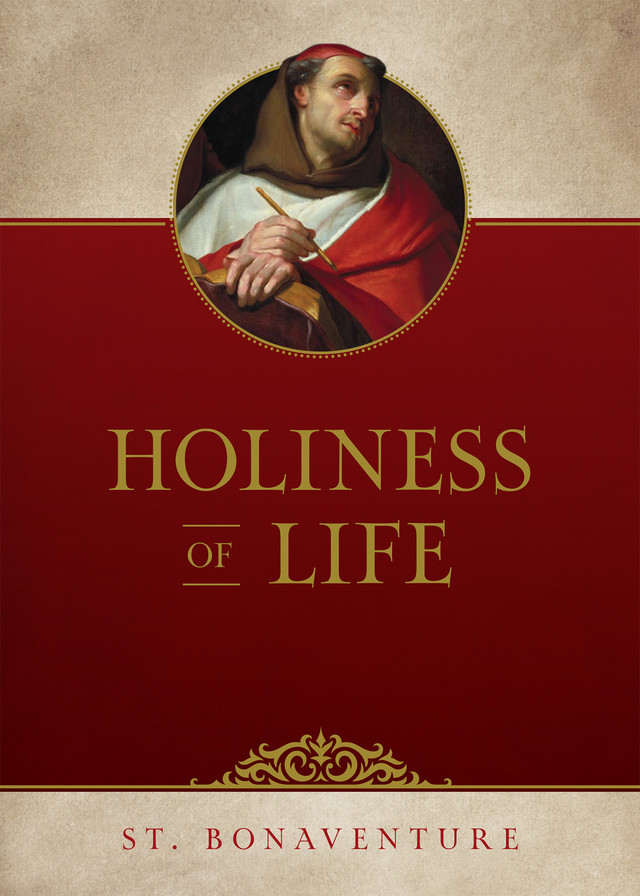Saint Bonaventure teaches that true holiness begins with deep and honest self-examination. By identifying negligence, passions, and malice within, the soul can progress toward perfection. This journey requires sincere reflection, repentance, and the rejection of sinful tendencies to grow closer to God.
Begin with Honest Self-Examination
The spouse of Christ who longs to become perfect must begin with her own self. She must put aside and forget everything else, entering into the secrecy of her own heart. When she has done this, let her sift thoroughly all her weaknesses, habits, affections, actions and sins. She must weigh everything carefully, and make a complete examination of past and present. Should she discover even the least imperfection, let her weep in the bitterness of her heart.
The Three Root Causes of Sin
Negligence, passion, and malice are the three root causes of sin (Cf. Bonaventure’s Threefold Way.) When we realize, dear Mother, that our sins and imperfections originate from one or other of these three causes, we enter on the way to an exact understanding of ourselves; but unless in our recollection of past offences we put our finger on the precise cause of each sin, we shall never reach the goal of perfect self-knowledge.
Perfect self-knowledge, I feel sure, is the object you propose to yourself. You wish, helped by such knowledge, to bewail your past transgressions. Since this is so you cannot do better than to proceed as follows.
First, discover by reflection whether you are occasionally or habitually negligent. Recollect whether the control of your heart is slipshod and haphazard. Are you careless in the use of your time? Is the intention you propose to your self habitually imperfect? Examine yourself diligently on these three points, because it is of the utmost importance that you govern your affections, that you spend your time profitably and that always and in every action you have a good and becoming object or end in view.
Neglecting Duties and Penitential Exercises
Recollect how negligent you have been in the discharge of your duties: prayer, reading, and the like. Remember that the performance of these tasks and the cultivation of these practices demand your best energies if you are to produce and bring forth worthy fruit in due season. (Cf. Ps. i, 3.) It is of little avail to excel in one practice if you fail in the others.
Go on with the examination, recalling to mind your neglect of penitential exercises, your negligent attitude towards temptation and sin, as well as your general disregard for the means of perfection. To reach the Promised Land you must weep with grief at the thought of the sins you have committed. Further, you must resist temptations to evil, and you must “advance from virtue to virtue.” (Ps. lxxxiii, 8.) Take to heart these principles, and you will be able to form a true estimate of your negligence.
Identifying Interior Promptings: Pleasure, Curiosity, Vanity
Should you wish to pursue the subject and know yourself still better, take another look at yourself and ask whether your interior promptings tend towards pleasure, curiosity or vanity.
There is an evident weakness for pleasures of sense when a religious looks eagerly for what is sweet, for instance, delicious dishes. A similar weakness prevails when she is anxious for what is soft and comforting: fine clothing, for example, or things gratifying to or soothing to the flesh, as, for example, luxuries. You may know for a certainty that the handmaid of the Lord is a victim of inquisitiveness when she longs to fathom secrets, to gaze on pleasurable and beautiful objects, and to possess unusual and precious things. To seek the esteem and the good opinion of others, to look for the praise of men and to be anxious for the honors in their gifts: the presence of any or all of these tendencies in a spouse of Christ shows a vain mind. O handmaid of Christ, shun these proclivities as poison, for they are the springs or founts of evil!
Recognizing the Malice of Anger, Envy, and Sloth
You will complete the examination and understand yourself thoroughly if you discover whether you nourish or have nourished within your breast the malice of anger, envy, or sloth. Please pay attention to what I have to say.
Anger or irascibility is surely nourished in the heart when the thoughts, whisperings, spoken words, emotions, gestures or features of a religious are tinged with even the slightest coloring of animosity or indignation against another. Envy holds sway in a man when he feels joyful at another’s misfortune or is sad when better things come his neighbor’s way. The envious man rejoices at another s troubles and is cast down when all goes well with him. Sloth cannot be mistaken. It is sloth that inclines the religious to lukewarmness, drowsiness, unpunctuality, laziness, negligence, remissness, dissoluteness, lack of devotion, sadness, or weariness. The spouse of God must have a holy horror of these things and avoid them as deadly poison. In them lurks the ruin of both soul and body.
Valuing Yourself with True Humility
O handmaid, beloved of God, if perfect self-knowledge is your aim, reflect! “Enter into your heart and learn to value yourself at your proper worth. Discuss with yourself what you are, what you were, what you ought to be, and what you can be. Note what you were originally, what you are now through your own fault, what on the contrary good efforts ought to have made you, and what you still may be by correspondence with grace.” (St. Bernard, The Inter. Dwelling xxxvi)
Listen, dear Mother, to the Prophet David proposing himself as an example to you. “I meditated in the night with my own heart and I was exercised and I swept my spirit” (Ps. lxxvi, 7.) He meditated with his heart; do the same yourself. He swept his spirit; sweep yours. Cultivate this field. Fix your eyes upon your own self.
ooo
This article is taken from a chapter in Holiness of Life by Saint Bonaventure which is available from TAN Books.









